 I've gotten some great feedback on the survey that we have on the site. It was so interesting to see what people are thinking when they read, hear, and talk about diversity and culture. I am especially thankful for the information given about what could make discussions on diversity better. My mind is already churning away with ways to put much of what was mentioned in place. But first I wanted to address something that was not explicitly stated, but certainly alluded to... I got the impression from many responses that people are quite worried about making mistakes when it comes to diversity. I completely understand where that comes from. I often have that same fear. I know quite a bit about cultural competence, but I am by no means perfect. I say the wrong thing. I react the wrong way. I cringe at some of my automatic thoughts. But we are all going to make mistakes when it comes to cultural competence. Why? Because full, total, and complete cultural competence is not possible. There is no way to know everything there is to know about every culture out there. And even if you did know everything, you were still raised and socialized to have biases. We all have them and they are automatic. We can't always control our gut reactions and feelings when engaging with people from other cultures. What we can do is become aware of these reactions and control our behaviors. With enough practice, our actual mindset will begin to change. **For those of you who are not mental-health professionals, this is a crash course in cognitive-behavioral therapy. It gets a lot of attention because research shows that it's very effective. But it doesn't have to just be for therapy. People often think that they have to change their mindset and then their behaviors will follow. More often than not, it's actually the opposite. Change your behavior and your mind will follow. Try it sometime. IT WORKS. We are human. We make mistakes. In every aspect of our lives. We shouldn't expect perfection for most things or from most people. It's really important to be forgiving of yourself and model that for your kids. Don't expect them to get a perfect score on every. single. test. Don't expect them to be the best at every sport. And don't expect that they will always do the 'right' thing when it comes to diversity. Give them the experiences and knowledge they need to continue to ask questions and then let them make a mistake every once in awhile. And while you're at it, do the same thing for yourself. Then give yourself a nice pat on the back for doing all that you could as a parent. Perfection NOT Required. Have you taken the survey yet? What are you waiting for?! It's easy, quick, and fun! While you're at it, sign up for the newsletter. You'll get tips, strategies, thought-provoking articles, and funny content. Plus the occasional sneak peek of exciting things to come on CCK! Along with the newsletter, you'll get a great list of diverse books for kids of all ages - babies to young adult. We hope you'll join us!
0 Comments
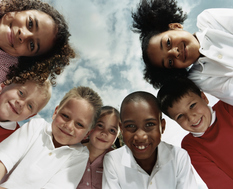 This is it! Our final installment of our blog series on the essential elements of cultural competence. I hope you've found the tips helpful as well as the article by Terry Cross and colleagues. In the article, the authors talk about cultural competence in relation to organizations and systems. In this blog series, we're attempting to pare it down to the individual and include tips on how to develop these skills in your home with your kids. Check out the previous installments on knowledge, interaction, self-assessment and valuing diversity. And let me know if you want more series like this one! What are you interested in? Do you have any burning questions? Leave a comment below or contact me directly to let me know your thoughts. I can't wait to hear from you! So the fifth and final (at least according to the article) essential element for cultural competence is having developed adaptations to service delivery reflecting an understanding of cultural diversity. I think it's pretty clear that this one is tailor made for organizations as opposed to individuals, but I do think that we can reinterpret it to apply to children and adults. To me, this last element is all about taking action. How can we show that we have an understanding about cultural diversity? It's not enough just to acquire knowledge, it has to translate to actual changes in behavior. So how can you support the development of these changes in your child?
What did you think of the blog series? Do you think that there are only 5 essential elements to cultural competence? If not, what's missing? Should any be taken out? Tell me your thoughts below! And don't forget to sign up for the newsletter! Instead of having to remember to check out the blog, you will get great information delivered right to your inbox. Tips, strategies, articles, and videos so you don't have to figure it all out yourself! When you sign up, you will receive a FREE diverse book list for kids of all ages-babies to young adults, which is a great way to start your child's diversity journey. And don't forget to follow me on Facebook & Twitter!  This is the fourth installment in this blog series. I hope you're loving it! Check out the previous posts on interaction, self-assessment, and valuing diversity. We will have one more to go after this one. The series is based on an article by Terry Cross and colleagues written in 1989 about cultural competence. In the article, the authors talk about cultural competence in relation to organizations and systems. In this blog series, we're attempting to pare it down to the individual and include tips on how to develop these skills in your home with your kids. The latest essential element of cultural competence is about having institutionalized cultural knowledge. In my opinion, this is a fun essential element because it's all about learning! And there are so many ways to teach your kids that are fun and engaging for the whole family. I like the idea of paring this one down to "having cultural knowledge". I believe that should be of individuals and institutions. So how can you go about doing that with your kids and keeping it fun so they'll actually learn something? Well, I'm glad you asked...
Did you like this post? Sign up for the newsletter! Instead of having to remember to check out the blog, you will get great information delivered right to your email. Tips, strategies, articles, and videos so you don't have to figure it all out yourself! When you sign up, you will receive a FREE diverse book list for kids of all ages-babies to young adults. And don't forget to follow me on Facebook & Twitter! 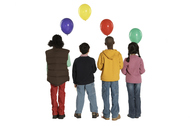 This is the third installment in this blog series; we are more than halfway through! It's based on an article by Terry Cross and colleagues written in 1989 about cultural competence. In the article, the authors talk about cultural competence in relation to organizations and systems. In this blog series, we're attempting to pare it down to the individual and include tips on how to develop these skills in your home with your kids. The third essential element for cultural competence is being conscious of the dynamics inherent when cultures interact. Well, what the heck does that mean?!? Well, when people of different cultures talk to each other, work with each other, befriend each other, there are going to be some cultural misunderstandings. What is considered normal in one culture may be different or strange in another culture. For example, there are some countries that teach their school children that there are 5 continents, not 7. In Norway, it's often considered bad table manners to eat a sandwich or burger with your hands. Apparently, there are lots of things that Americans do that others find rude (and vice versa!). So there are bound to be misunderstandings. How can you teach your child to anticipate, and even embrace, these awkward and sometimes uncomfortable situations?
Did you enjoy this post? Sign up for the newsletter! Instead of having to remember to check out the blog, you will get great information delivered right to your email. Tips, strategies, articles, and videos so you don't have to figure it all out yourself! When you sign up, you will receive a FREE diverse book list for kids of all ages-babies to young adults. Enjoy and tell me what you think! A good friend of mine, Sally Wagner from Sweet Peas and ABC's (if you don't know her already - you need to. She and her site are amazing), shared this with me last night and I knew I had to post it here. These girls, who look to me like they are teenagers, outline beautifully the importance of modeling for kids. This is an important piece that I hope will make you think a little bit about what you are teaching your kids-directly and indirectly. Enjoy and leave a comment below. Enjoyed this post? Sign up for the newsletter! You'll get regular tips and strategies delivered right to your inbox.
 This is the second installment in this blog series. It's based on an article by Terry Cross and colleagues written in 1989 about cultural competence. In the article, the authors talk about cultural competence in relation to organizations and systems. In this blog series, we're attempting to pare it down to the individual and include tips on how to develop these skills in your home with your kids. This post is about the second element, having the capacity for cultural self-assessment. This is exactly what it sounds like; how well someone can look inside themselves and acknowledge their own level of cultural competence. This is such an important skill for kids to develop and parents can do a lot to help it grow. Here are some quick tips on how to help your kid examine themselves as cultural beings:
Did you enjoy this post? Sign up for the newsletter! Instead of having to remember to check out the blog, you will get great information delivered right to your email. Tips, strategies, articles, and videos so you don't have to figure it all out yourself! When you sign up, you will receive a FREE diverse book list for kids of all ages-babies to young adults. Enjoy and tell me what you think!
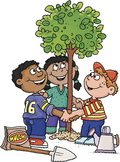 In 1989, Dr. Terry Cross and his colleagues published an article that defined and described cultural competence. Within that article, the authors listed five elements of cultural competence for organizations. Although this list was developed for systems, institutions, and agencies, I believe that the 5 different elements can be adapted for individuals. So what are these different elements and how can you help your children develop them? The first element is valuing diversity. Values definitely begin to develop at an early age so this is a perfect place to start with your kids. If you want your kids to see the value in what people from other cultures have to offer, try to instill this value early. Here are some quick tips:
Did you enjoy this post? Sign up for the newsletter! Instead of having to remember to check out the blog, you will get great information delivered right to your email. Tips, strategies, articles, and videos so you don't have to figure it all out yourself! When you sign up, you will receive a FREE diverse book list for kids of all ages-babies to young adults. Enjoy and tell me what you think! This is a very, very cool little article about some really, really cool kids. I had no idea this school existed, even though it's only about an hour away from my house. The fact that these kids care enough to do something to save and preserve this place is so touching to me. What tugs at my little heart-strings even more is that not one of these kids is black! These kids are the epitome of what we teach here at CCK-if you truly care about diversity, you care about ALL diversity. Not just the diversity that affects you directly. If that's the case, you don't really care about diversity-you care about yourself. And let's face it folks, that's different. So check out the article, applaud these children (yes, children!) for the amazing and important work they are doing, and use their work to inspire us to look beyond ourselves. Like the new hashtag? I just came up with it (I swear-I checked Twitter and nothing came up!). So use it!!! Often! Let's start a movement!
Did you enjoy this post? Sign up for our newsletter! Instead of having to remember to check out the blog, you will get great information delivered right to your email. Tips, strategies, articles, and videos so you don't have to figure it all out yourself! When you sign up, you will receive a useful book list for kids of all ages-babies to teens. Enjoy and let us know what you think! |
AuthorDr. Sweeney is a licensed school psychologist and cultural competence expert. Here are her musings on life in a multicultural world. Archives
February 2017
CategoriesInterested in writing a guest blog post? Contact me for more information!
|
Proudly powered by Weebly
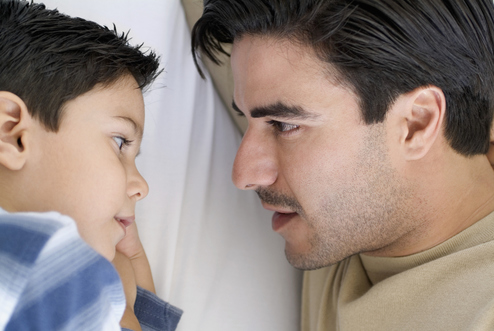
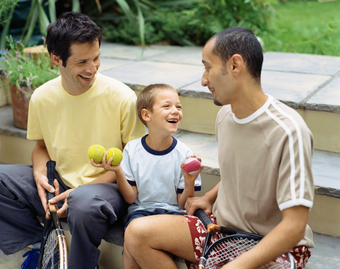
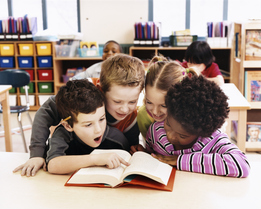

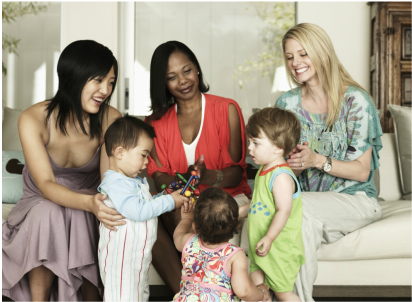
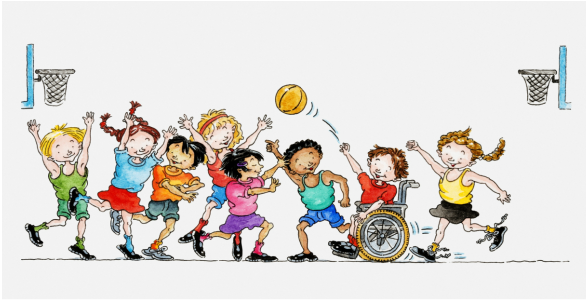

 RSS Feed
RSS Feed